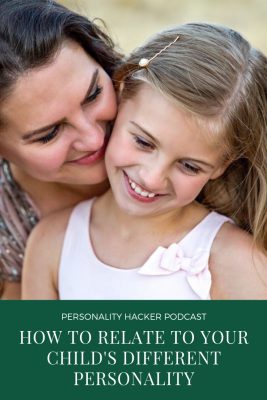Download Episode Here – right click link and select “Save Link As…”
In this episode, Antonia and Joel talk about how to relate to children if they are a different personality type than you, in particular, their learning style. Since there are different ways of seeing the world, we have a tendency to see the ‘other’ as broken or rebellious behavior in our children. What if they’re just responding to their natural wiring?
In this podcast you’ll find:
- Question from reader Andrea, “So as an intuitive type I am very curious to learn more about what it’s like to experience the world as a sensor. What motivates sensing types? What makes them feel good and what stresses them out? How can an intuitive mom help nurture the sensors around her so that everyone can shine?”
- The difference between sensory and intuitive learning styles.
- The percentage breakdown of the two styles, and what the disparity may mean.
- An intuitive parent may have an advantage in that they already have sensors on their radar.
- We all have both abilities, but we do have a clear preference.
- We’re good at our preferences because we clock so many hours using them.
- Intuitives get good at speculation, Sensors get good at mastering the physical realm like with athletics or spotting details.
- Intuitives help innovate, while Sensors create and maintain standards.
- Sensor kids have needs like being aware of their physical comfort and safety.
- Intuitive kids will often not see the rules as applying to them, so they may not be ‘rebellious’ when disregarding rules. Be careful before diagnosing them as ‘broken’
- Get yourself and your kids tested.
Things we reference in this podcast:
- Follow this link to get your own learning style tested. (Remember, if you test as either Memory or Sensation, you are a Sensor; if you test as Perspsectives or Exploration you are an Intuitive.)
-
Follow this link for an assessment designed for children.
Want to learn more?
Our program Personality Types in Children & Family dives deep into the personality types and dynamics of all family members, as well as tools for keeping them happy and healthy. Give your kids a major advantage by understanding by ordering Personality Types in Children & Family.
To subscribe to the podcast, please use the links below:
Subscribe with iTunes
Non iTunes Link
Download The Android App
Subscribe on Soundcloud
Subscribe with Stitcher
If you like the podcast and want to help us out in return, please leave an honest rating and review on iTunes by clicking here. It will help the show and its ranking in iTunes immensely! Detailed info here . We would be eternally grateful!
Want to learn more about your personality?
Discover Your Personal Genius
We want to hear from you. Leave your comments below…


Share:
Podcast – Episode 0008 – Smuggling Emotions
Podcast - Episode 0010 - Feedback That Makes You Squirm
8 comments
the link for the kids assesment doesnt work anymore :(
Thanks for the question, Tracey! I think that would make a great PHQ. Keep an eye out for your answer to appear in a podcast – PHQ.
You mention in this podcast that intuitives are more likely to feel that rules do not apply to them, and that concept is absolutely fascinating to me. Can you explain further why this is or point me toward a source to learn more about this aspect of the S/N difference? I have listed to your series on intuitives, which has been very fascinating, but I don’t remember this particular characteristic coming up in those discussions. I assume it has something to do with thinking outside the box v. inside the box, but I can’t really wrap my head around how an intuitive might think about rules at all, if they don’t imagine that they are to be followed.
For context, I’m an ISFJ, but I think of myself as very intuitive-friendly, since I have grown up surrounded by intuitive people, concepts and behavior. Being placed in “gifted” education programs K-12, majoring in the arts in college, and getting an advanced degree in a theoretical field has led me to actually feel more “at home” among intuitive types, even though I’m an “S”. Still, I’m always searching to understand intuitives as much as possible. In addition to having intuitive friends, I also have mostly intuitive coworkers, and my spouse is an N (INFJ).
We knew someone would know! :)
Thanks for the comment. Agree on all accounts.
A
The first desktop computer was made by Xerox. But the Xerox product was understood to bea small computer used in the same way as the mainframe, for the same kinds of applications and purposes. Gates and Jobs had no specific ideas about what a non-professional, home computer might be used for, but they believed there were possibilities that would emerge if desktop computers went from being expensive, hard to use, tools for professional engineers and statisticians, to being inexpensive, easy to use tools for regular people. The sensors couldn’t imagine these new uses because they didn’t already exist, and the intuitives didn’t have any specific ideas that were plausible. They were clearly pulling ideas out of their hat, and that’s not persuasive to sensors. They were wrong about a lot of the things they thought might be done, and failed to imagine most uses to which these devices would be applied. What they were right about is that if the devices were inexpensive and easy to use, applications would emerge. They could see the possibilities, even though they didn’t know with any clarity what would happen, just that it would be cool and popular, and they could build businesses to provide stuff for these things.